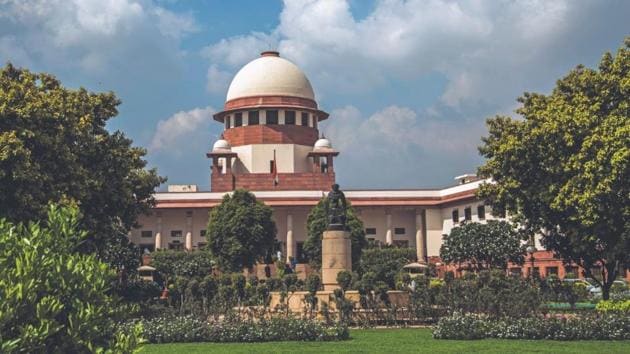On the AGR issue, the court must keep in mind the greater common good | Opinion
Can it resurrect the judgement seat of Vikramaditya in resolving this thorny issue ?
We all have grown up with the tales of emperor Vikramaditya embedded in our subconscious. Known for his wisdom, he is remembered as the greatest judge in history. The hallmark of his justice was that both sides understood the rationale behind his thinking and were always satisfied by his solution. And so, in India, whenever a judge pronounces a judgment with great skill and wisdom, it is said of him, “ He must have sat on Vikramaditya’s seat of judgment.” It’s another matter, though, that there is a fable of why that seat does not physically exist today, which is probably symptomatic of the times.

The Supreme Court is one our finest institutions and has displayed great wisdom over decades in pronouncing thoughtful, well rounded judgments and meted justice with an unquestionable fairness to all concerned. Though there have been rising instances of judicial overreach over the last decade, the Adjusted Gross Revenues (AGR) proceedings seem to be in quite a different bracket.
This was a case where the court had ruled that the telcos are liable to pay the department of telecom (DoT) the disputed amount. So far, so good. The court’s role was perfectly understood till its ruling on the “applicability” of the AGR to telcos was concerned. DoT was the appellant, the telcos were the appellees, and there was a disagreement.
Since then, though, the court seems to have adopted a “commercial” role in negotiating the best bargain on behalf of a seemingly reluctant DoT, despite difficulties expressed by all telcos, including Vodafone Idea, in meeting the deadline.
Surprisingly, DoT itself is not an aggrieved party as it has expressed willingness to accept a 20-year payment period. Ostensibly, DoT, and by implication, the government would have carefully evaluated the wide implications of Vodafone Idea’s collapse. Being a listed entity, its financial position is in the public domain and any professional finance expert — if appointed as an amicus curiae —will be able to advise on the nuances of financial disclosures to prove the public perception that Vodafone Idea’s balance sheet cannot support funding the required ~51,000 crore in the medium term, and the only possibility of paying up is by ensuring its survival to earn adequate profits over the long-term.
In this context, the court’s comments on the existence of “profits” due to a provision of contingent liabilities, providing bank guarantees, personal guarantees of directors and its demand for a “reasonable” amount of upfront payment would seem unreasonable. Any insistence on squeezing immediate cash flows for the telcos would be tantamount to encouraging a duopoly in India as Reliance Jio is unaffected by the AGR situation. Surely, from a public policy perspective, that could not be an outcome which is either desirable,or acceptable, to any institution mandated to uphold the interests of public good.
The court has also brought up the concept of upfront payment by telcos to help the government in its resource augmentation efforts. Remember, the government had not pleaded this position at all and its resource constraints are gigantic multiples of these small upfront payments.
It must be appreciated that unless Vodafone Idea is allowed to remain competitive (which requires further massive investments), it will not survive long enough to pay the dues to DoT and the banks. Given its high leverage, the banking system will suffer immediate losses far in excess of AGR dues. And, given its obvious financial constraints, cash is the most critical resource it needs to conserve. Regrettably, it is this precise resource which is sought to being appropriated by a court judgement in a curious case where the creditor itself is willing to accommodate a reasonable payment schedule.
The government understands the implications of the collapse of Vodafone Idea on the banking system, employment , policy messaging to the international community and, of course, handing over the telecom market to two players ( Bharti and Reliance Jio ). As I have written elsewhere, Atmanirbhar Bharat can get off to a flying start almost immediately if strategic telecom-technology alliances are encouraged, without the hangover of uncertain policy and judicial pronouncements which stymie business and investments. This will reap immediate benefits for India as it desperately seeks avenues of accessing global capital to revive growth. The providential time window, though, provided by the current state of play in global technology trends, is short, and policymakers and courts must recognise the urgency of a genuine “ease of doing business” paradigm in India. Google’s reported interest in Vodafone Idea is a low hanging fruit waiting to be plucked.
I trust the Supreme Court will weigh the implications of its going down the present route in totality. It must revert to its role of engaging only in disputes between parties. When it ordains its occasional undeniable role in public policy matters, then it must be guided by the larger interests of the entire community. That would remind the world of ancient Indian wisdom and that the judgment seat of Vikramaditya still endures in contemporary times.
Prabal Basu Roy is a Sloan Fellow from the London Business School, director and adviser to chairmen of corporate boards. The author has formerly been a Group CFO in various companies.
The views expressed are personal






